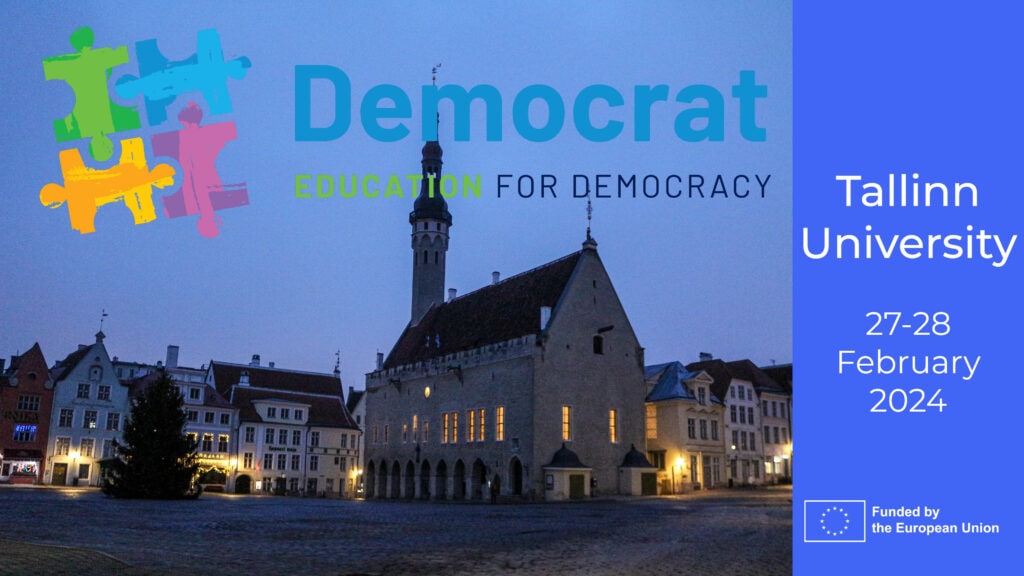
In this article:
The recent Tallinn Conference hosted by the EU Horizon-funded “DEMOCRAT” Project provided a platform for scholars, policymakers, and practitioners to delve into the critical intersection of education and democracy. Held over two days, the conference showcased insightful discussions, research presentations, and collaborative sessions aimed at exploring the challenges and opportunities surrounding democratic citizenship education in today’s context.
Day 1: Exploring the Role of Education in Democratic Citizenship
The conference commenced with a welcoming session featuring key figures such as Leif Kalev and Daniel Montolio, who provided an overview of the DEMOCRAT project’s objectives. Francisco de la Torre from the European Commission emphasized the project’s significance in fostering democratic values across EU countries.
The first session, chaired by Leif Kalev, focused on the relevance of education for democracy. Keynote speaker Gerry Stoker highlighted the importance of democratic citizenship in contemporary society. Following this, Beatriz Toscano and Georgios Kostakos discussed the conceptual approaches of the DEMOCRAT project, sparking crucial conversations on the learnability of democracy.
The subsequent sessions delved into the state of democracy education in EU countries, featuring statistical insights, comparative perspectives, and case studies from esteemed researchers across Europe. These sessions provided valuable insights into the socioeconomic backgrounds, citizenship values, and political participation trends among European youth.
Day 2: Tackling Challenges and Opportunities in Democratic Citizenship Education
The second day commenced with discussions on balancing agency and responsibility in citizenship education, led by Leif Kalev. Panels featuring experts like Mike Osborne and Mare Oja delved into the challenges and opportunities posed by digitalization, curriculum changes, and teacher preparation in democratic citizenship education.
Moderated sessions facilitated interactive discussions, gathering input for the DEMOCRAT project’s pilots. Participants engaged in a World Café format, addressing key questions on pilot focus areas, teacher preparation, evaluation methods, and scalability of existing practices. These sessions fostered collaboration and idea exchange among stakeholders, laying the groundwork for future initiatives.
Closing Thoughts
The conference concluded with reflections from project advisor Mike Osborne, expressing gratitude to all contributors and organizers. The event not only shed light on the complexities of democratic citizenship education but also paved the way for collaborative efforts and innovative solutions.
As participants dispersed, some opted for an optional Tallinn medieval tour, symbolizing the journey towards a more inclusive and participatory democracy. The Tallinn Conference served as a testament to the collective commitment towards strengthening democratic values and fostering informed citizenship across Europe.
Stay tuned for further updates and developments from the DEMOCRAT project as it continues to shape the landscape of democratic education in the EU.
More on DEMOCRAT: